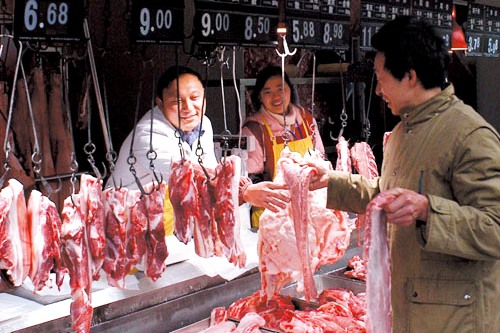Marathoners in Beijing Sport Masks as They Run Through Heavy Pollution
Posted: 10/20/2014 8:05 am
A runner wears a gas mask for the marathon on Sunday.
If the 34th Beijing International Marathon held on Sunday had a mascot, the animal of choice would surely come accessorised with a gas mask.
Many participants were seen wearing surgical masks, and even gas masks to protect themselves from Beijing’s hazardous smog, which was recorded at 331 micrograms of PM 2.5 particles per cubic meter on Sunday, Tencent reported. A level of 300 or more is considered hazardous by the US Environmental Protection Agency.
The heavy smog prompted the Beijing Marathon Committee to issue a warning the night before the event, urging participants to take the necessary precautions to protect themselves. “(We urge) participants to pay attention to weather updates, and take necessary measures depending on one’s personal situation,” the Committee wrote, “If you experience physical discomfort, please withdraw from the run.”
As one might expect from the photos, a number of contestants were forced to quit due to the heavy smog. One contestant from Kenya withdrew from the race after leading for more than 20 kilometres, Sohu said. The race started at Tiananmen and finished at the Bird’s Nest National Stadium.
Shortly after the race, the term “human de-smog machine” began trending on Sina Weibo. Users likened the marathon runners to vacuum-like machines sucking-up the city’s thick smog. Weibo user -曲高和寡- commented, “How wise of the government to use some 30,000-strong human de-smog machines to clean the air before the upcoming meeting.” The meeting 曲高和寡 was referring to is the Central Committee’s fourth plenum, scheduled to start today. At the plenum, China’s leadership will discuss a range of issues from rule of law to the possible fate of Zhou Yongkang, China’s former security tsar.
Another user 王志鈞_ZJDESIGN applauded the runners and their environmental impact: “#2014 Beijing Marathon, with concerted efforts from tens of thousands of participants, Beijing’s smog index has dropped slightly.” He posted a screen grab of three different readings by US Embassy, which showed the city’s PM 2.5 reading dropped from 405 at 10 am to 345 at noon on Sunday.
Even People’s Daily posted a comment on its official Sina Weibo account, asking participants to “be strong and not inhale (自强不吸)”, playing on the Chinese idiom 自强不息.
Photos: Sina Weibo





























